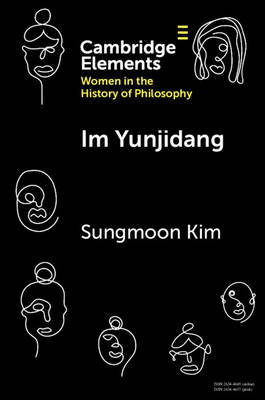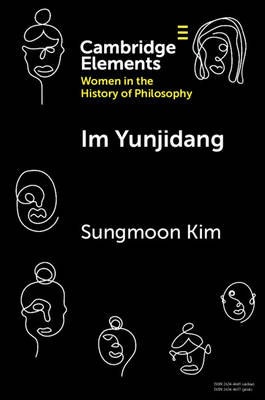
- Afhalen na 1 uur in een winkel met voorraad
- Gratis thuislevering in België vanaf € 30
- Ruim aanbod met 7 miljoen producten
- Afhalen na 1 uur in een winkel met voorraad
- Gratis thuislevering in België vanaf € 30
- Ruim aanbod met 7 miljoen producten
Zoeken
€ 33,45
+ 66 punten
Omschrijving
This Element aims to critically examine the philosophical thought of Im Yunjidang 任允摯堂 (1721-93), a female Korean Neo-Confucian philosopher from the Chosŏn 朝鮮 dynasty (1392-1910), and to present her as a feminist thinker. Unlike most Korean women of her time, Yunjidang had the exceptional opportunity to be introduced to a major philosophical debate among Korean Neo-Confucians, which was focused on two core questions-whether sages and commoners share the same heart-mind, and whether the natures of human beings and animals are identical. In the course of engaging in this debate, she was able to reformulate Neo-Confucian metaphysics and ethics of moral self-cultivation, culminating in her bold ideas of the moral equality between men and women and the possibility of female sagehood. By proposing a 'stage-approach' to feminism that is also sensitive to the cultural context, this Element shows that Yunjidang's philosophical thought could be best captured in terms of Confucian feminism.
Specificaties
Betrokkenen
- Auteur(s):
- Uitgeverij:
Inhoud
- Aantal bladzijden:
- 82
- Taal:
- Engels
- Reeks:
Eigenschappen
- Productcode (EAN):
- 9781009010665
- Verschijningsdatum:
- 11/08/2022
- Uitvoering:
- Paperback
- Formaat:
- Trade paperback (VS)
- Afmetingen:
- 152 mm x 229 mm
- Gewicht:
- 122 g

Alleen bij Standaard Boekhandel
+ 66 punten op je klantenkaart van Standaard Boekhandel
Beoordelingen
We publiceren alleen reviews die voldoen aan de voorwaarden voor reviews. Bekijk onze voorwaarden voor reviews.








